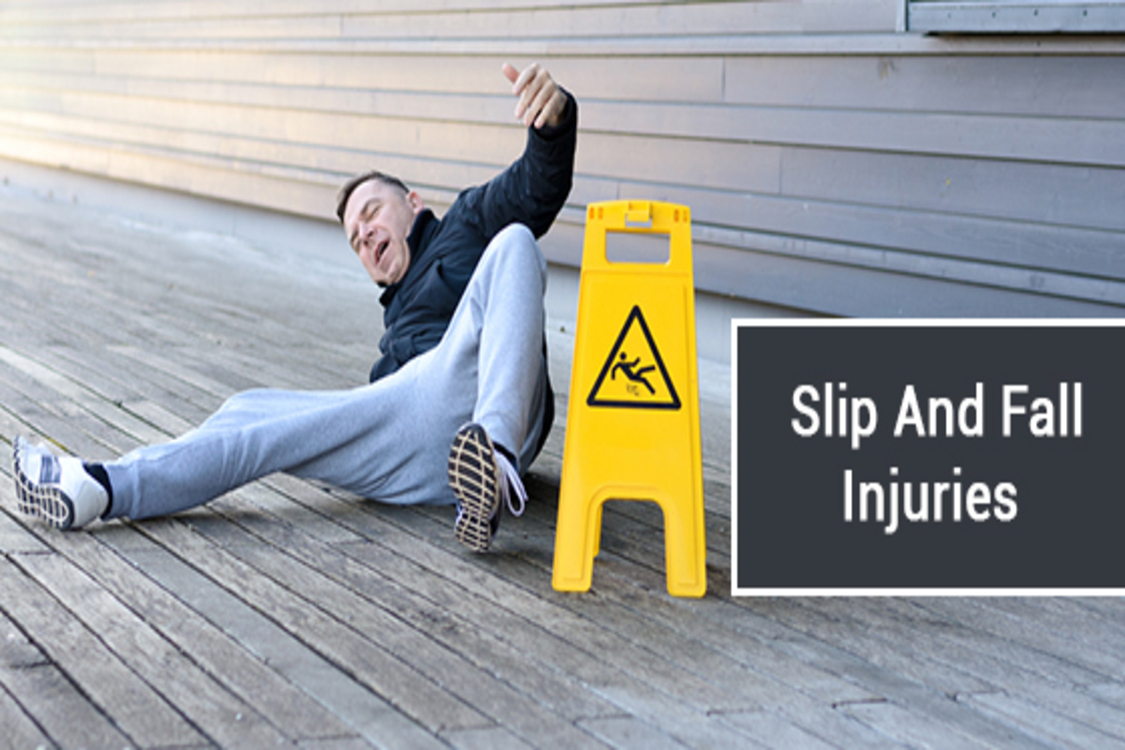Slip and fall accidents are common occurrences, and when they happen on roads or sidewalks, they can cause serious injuries. These incidents often lead to medical bills, lost wages, and significant pain and suffering. Fortunately, if you’ve been injured in a slip and fall accident due to someone else’s negligence, you may be entitled to compensation. However, the process doesn’t end with receiving compensation — there are several factors to consider after a settlement or court judgment is reached.
In this blog, we’ll explore what happens after you’ve been compensated for a slip and fall accident on the road, how to manage the aftermath, and how to ensure that your recovery is smooth, both financially and physically.
What Constitutes a Slip and Fall Accident?
A slip and fall accident occurs when a person trips or slips due to hazardous conditions, such as an uneven surface, ice, or debris, leading to injuries. These accidents can occur anywhere, including public roads, sidewalks, parking lots, or private property. Common causes of road-related slip and falls include:
- Icy or snowy roads: During winter, poorly maintained sidewalks or roads covered in ice or snow can be hazardous.
- Uneven pavement: Cracks, potholes, or uneven surfaces can cause a person to lose their balance and fall.
- Debris or obstacles: Objects like loose gravel, trash, or construction debris can create dangerous walking conditions.
- Poor lighting: Insufficient street lighting can make it difficult to spot hazards, increasing the risk of an accident.
For a slip and fall claim to be successful, you must show that the property owner or responsible party was negligent in maintaining the road or sidewalk and that their negligence directly caused your injuries.
Types of Compensation You Can Receive
Once you’ve established liability in your slip and fall case, the next step is compensation. The compensation you receive for a slip and fall accident generally falls into two categories: economic damages and non-economic damages.
- Economic damages are financial losses that can be easily quantified. This includes:
- Medical expenses: Reimbursement for hospital bills, doctor visits, physical therapy, and any future medical treatments related to the accident.
- Lost wages: Compensation for time you had to take off work due to the injury.
- Out-of-pocket expenses: Any additional costs related to the injury, such as transportation to medical appointments or hiring help at home if you’re unable to perform daily tasks.
- Non-economic damages refer to intangible losses such as:
- Pain and suffering: Compensation for the physical pain and emotional distress caused by the accident.
- Loss of enjoyment: If your injuries prevent you from participating in activities you previously enjoyed.
- Permanent disability or disfigurement: If the accident results in long-term or permanent damage.
What Happens After Compensation?
After successfully settling or winning your slip and fall case, your compensation will likely be delivered in one of two ways: lump-sum payment or structured settlement.
- Lump-sum payment: This is a one-time payment that covers the total amount of compensation you are owed. Once you receive a lump-sum payment, it is your responsibility to manage the funds to cover your expenses.
- Structured settlement: In this arrangement, compensation is paid out in periodic installments over time. Structured settlements are common in cases where long-term care or ongoing medical expenses are required.
Regardless of how the compensation is paid, the financial relief should help cover the immediate and future costs of your injuries. However, receiving compensation doesn’t mean that your journey is over. Here’s what you should focus on after compensation.
1. Managing Your Medical Treatment
Even after receiving compensation, it’s important to continue managing your medical recovery. This includes:
- Attending follow-up appointments: Continue seeing your healthcare providers for any necessary treatments, check-ups, or physical therapy sessions.
- Adhering to treatment plans: If you’ve been prescribed medications or exercises, make sure you stick to the regimen to ensure proper healing.
- Planning for long-term care: In cases of serious injury, you may need ongoing care. Ensure that your compensation covers future medical needs and consider setting aside funds for unexpected medical costs.
2. Handling Financial Responsibilities
Once you’ve received your settlement or court award, it’s essential to manage your finances responsibly, especially if you received a large sum of money.
- Pay medical bills: First and foremost, use the funds to settle any outstanding medical bills related to your injury. Keep all records of these payments in case they’re needed in the future.
- Repay liens: If your health insurance, workers’ compensation, or other entities paid for your medical treatment, they may have a lien on your settlement. Be sure to resolve these claims as part of the compensation process.
- Budget wisely: Create a budget to manage your settlement and allocate funds for future medical expenses, lost wages, and other costs that could arise from the injury. A financial advisor can help guide you on how to invest or save your settlement for the long term.
3. Navigating Legal Considerations
After a settlement or court judgment, there may still be legal matters to address. These could include:
- Tax implications: While personal injury compensation is typically non-taxable, there are exceptions. For example, any portion of the settlement awarded for lost wages may be subject to taxes. Consult a tax advisor to understand how your settlement might affect your tax liability.
- Medicare/Medicaid considerations: If you receive benefits from Medicare or Medicaid, certain reporting and reimbursement requirements may apply. Make sure to inform your lawyer about any government benefits to avoid complications.
4. Dealing With Emotional and Psychological Recovery
The emotional toll of a slip and fall accident can be significant, especially if the injury caused permanent damage or affected your ability to work or participate in daily activities. It’s important to:
- Seek counseling or therapy: Emotional recovery is just as important as physical recovery. If the accident has caused you stress, anxiety, or depression, don’t hesitate to seek help from a professional therapist.
- Lean on support systems: Family and friends can be an essential source of emotional support. Let those close to you know what you’re going through and ask for help when needed.
5. Preventing Future Accidents
After your recovery, it’s important to reflect on the circumstances of your slip and fall accident and take steps to prevent future injuries. Here’s what you can do:
- Report hazards: If your accident occurred in a public area, report the hazard to the proper authorities or property owners to ensure it is addressed.
- Be cautious in hazardous conditions: If weather conditions, such as ice or rain, caused your fall, take extra precautions in similar situations moving forward.
- Stay aware of your surroundings: Pay attention to uneven pavement, poorly lit areas, or debris when walking on roads or sidewalks.
Conclusion
A slip and fall accident on the road can be a life-changing event, but compensation can provide much-needed relief for the financial and emotional burdens caused by the injury. After you’ve been compensated, it’s important to manage your medical treatment, handle financial responsibilities, and focus on your emotional recovery. By taking these steps, you can ensure that your compensation truly helps you recover and move forward after your accident.




